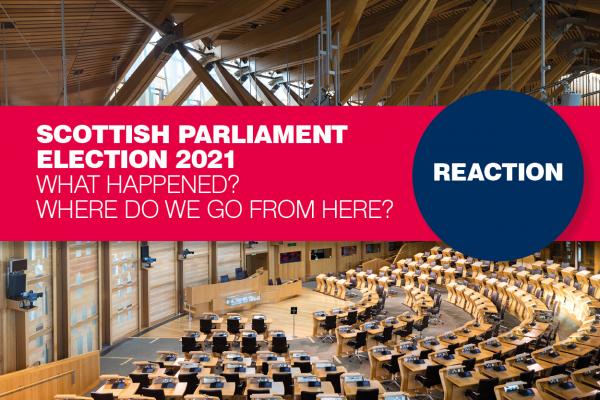Over the coming weeks, academics will respond to the 2021 election results. Today, Richard Parry reflects on the 2021 Holyrood election and what it might mean for the future.
For an election where so few seats changed hands, this was a remarkably energising event – turnout (63.2%) and media attention reaching UK election levels, many new MSPs, and a clear and highly negative verdict on Alex Salmond’s attempt to disrupt the party system. Still ranged against the SNP are four parties representative of four established European political traditions.
The SNP increased their constituency vote to a record to a record 47.7% and also limited their fall in list vote to 1.3% (41.7% to 40.4%), less in some regions and half of what the polls were suggesting. This enabled them to win two list seats and edge up from 63 to 64 in total. That one seat is important, as with a non-SNP Presiding Officer it puts the voting strengths in the chamber exactly equal and should protect the SNP from cross-party heaves against them.
The campaign generated vast amounts of largely hot air about the way forward on independence. The fact that devolution legislation prevents the Scottish Parliament from repealing that Act of Union but does not prevent it from calling referendums raises a lively legal question, but the real considerations are political. For both sides the risks of losing a second referendum are immense, and are best reduced by not holding one.
This makes the most likely outcome, after a year or two breathing space, a political deal like that of 2012 based on mutual calculation. The legal path is also clear, and entirely normal in multi-level systems: Holyrood passes its already-drafted referendum bill, the UK government challenges its competence and asks the Supreme Court to agree. But here the win-win possibilities favour Scotland. Either the UK has a disastrous day at court and would find it hard not to recognise, contest and respect the new poll; or they cede the higher ground of democratic theory to the SNP who could play the victim, confirmed last week as the party the electorate wants to run devolved Scottish government and represent the nation.

